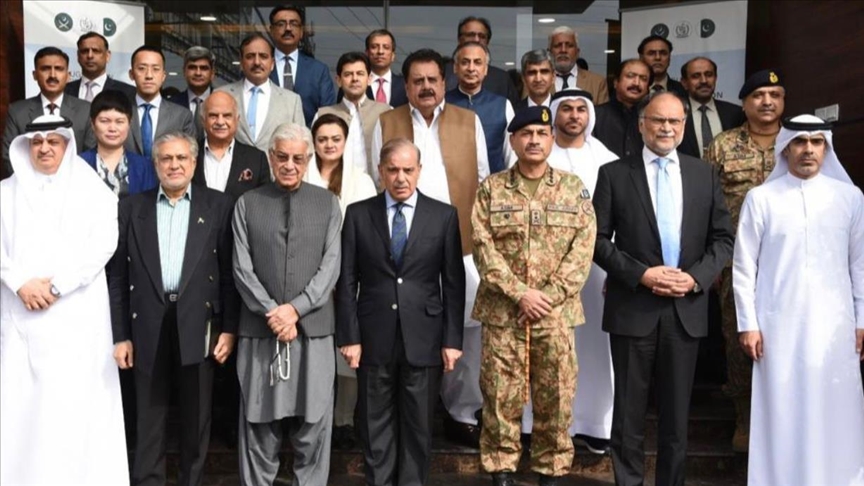Pakistan launches project to convert uncultivated land into cultivable land to overcome food insecurity
36.9% of Pakistanis food insecure, says World Food Program
 Photo Credit by Prime Minister Office in Islamabad, Pakistan
Photo Credit by Prime Minister Office in Islamabad, Pakistan
ISLAMABAD
Pakistan launched a project Friday to convert millions of hectares of uncultivated waste state land into cultivable land to overcome food insecurity challenges.
Prime Minister Shehbaz Sharif inaugurated the Land Information and Management System - Center of Excellence to enhance food security, according to a statement from his office.
Pakistan will convert 4.4 million hectares (10.9 million acres) out of around 9 million hectares of uncultivated land into cultivable productive land by utilizing Modern Agri Technologies, it said.
"This state-of-the-art System will help optimize the agricultural production through innovative technologies and sustainable precision agricultural practices based on agro-ecological potential of land, while ensuring the well-being of rural communities and preservation of the environment," said Sharif.
Pakistan is an agriculture-based economy with its agriculture sector contributing 23% to GDP and providing employment to almost 37.4% of the nation’s labor force.
Currently, the area under cultivation is decreasing while the population-production gap is increasing and agriculture-related imports touching the $10 billion mark ultimately causing economic stress, as per official documents of the project, available to Anadolu.
According to the World Food Program, 36.9% of Pakistanis are food insecure and 18.3% of that number are facing a severe food crisis.
While a wheat crisis is also increasing with total wheat demand reaching 30.8 million metric tons (MMT), current production is around 26.4 MMT, a shortfall of almost 4 MM.
"Cotton production has fallen by 40% from 14.8 m bales to ~5mn bales over the last 10 years," according to the documents.
With the new project, the government, along with the support of the armed forces, will enhance agricultural growth and production to utilize more than 9 million hectares of uncultivated waste state land in various phases.








